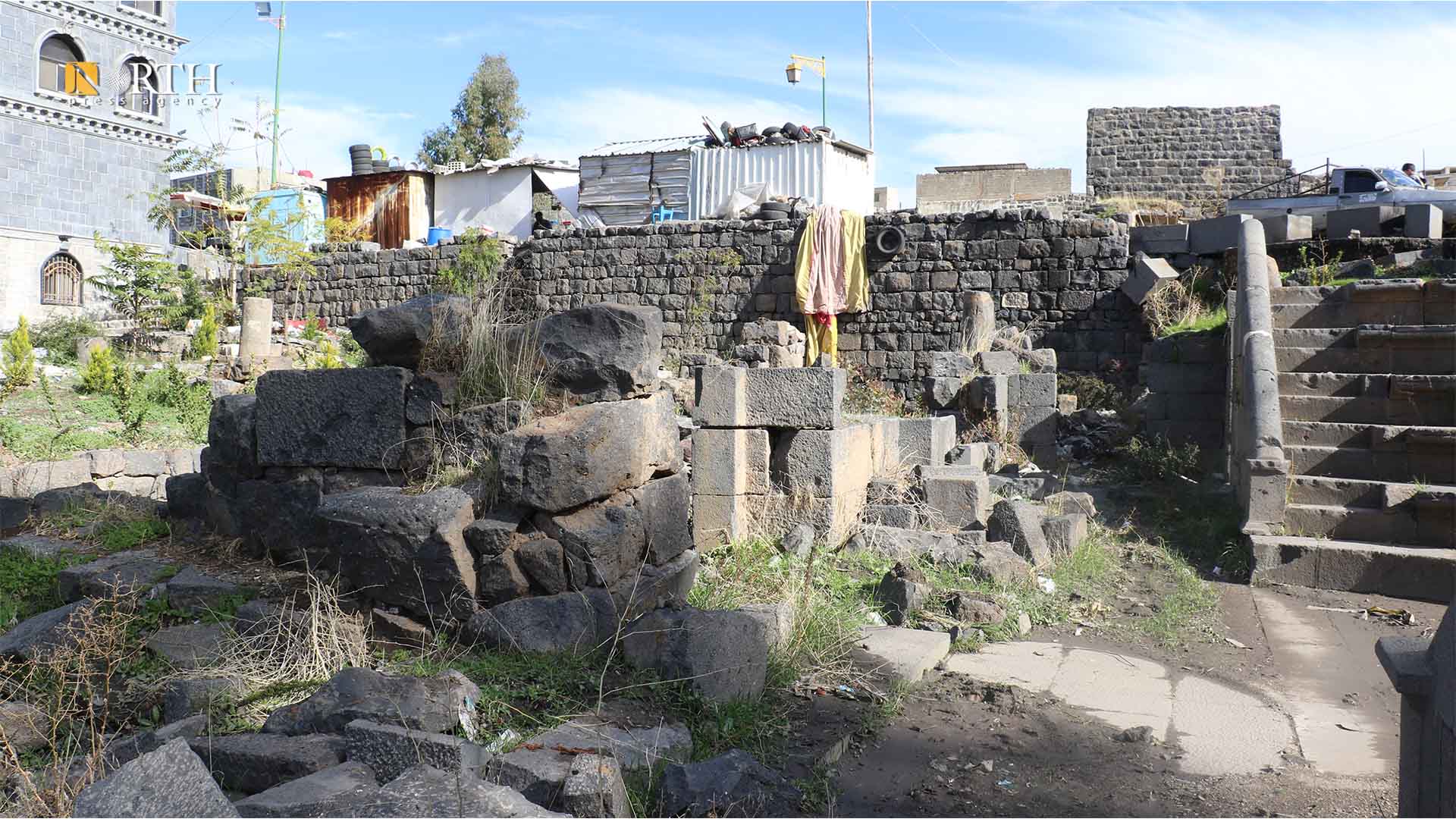SUWAYDA, Syria (North Press) – Residents and people interested in heritage and history in Suwayda, southern Syria, accuse military bodies affiliated with the Syrian government of continuously looting archaeological and historical sites in the region for decades.
A number of them provide testimonies about the establishment of additional military sites by those close to the presidency and the seizure of private property under the pretext that it belongs to the state, with the aim of concealing illegal excavations in search of valuable archaeological finds.
Suwayda governorate contains 400 archaeological sites registered by the Syrian Directorate of Antiquities, in addition to dozens of other unregistered sites. Suwayda is considered, according to UNESCO, an area rich in sites and monuments dating back to the Bronze Age, through the Roman and Byzantine periods until the Islamic era.
Samih Abdullah (a pseudonym), an historian interested in the city of Suwayda, said that the illegal excavations and theft of antiquities inside the city of Suwayda increased after 2011 as a result of security chaos. He added that those operations were conducted by individuals linked to specific security services such as the Military Intelligence Branch, which provided security cover during the excavations at night.
The excavation work has affected the Roman Church in the city of Suwayda, which according to the French mission that worked in the year 2000 at the site, is one of the oldest churches in the Middle East, dating back to 250 AD.
Abdullah believes that the rich monuments of Suwayda would have attracted thousands of tourists if the Syrian government had cared about building tourist facilities there.
Sami al-Jabal (a pseudonym), a conceptual artist from Suwayda, said that he feels distressed every morning when he sees the great neglect of the archaeological sites and the garbage gathered there. He added to North Press that the neglect of government agencies, especially the Directorate of Antiquities in Suwayda, made these sites vulnerable to looting and theft despite their importance in the history of the region.
The Syrian government destroyed many antiquities during the construction of the main road in Suwayda in 2001.
Those interested in the history of Suwayda point to the involvement of residents of Suwayda, whose homes are located on Roman buildings, in the illegal excavations. They said that a number of archaeological sites in the region have been subjected to systematic looting over the past decades, such as Arman Hill in the southeastern countryside of Suwayda, the ancient towns of al-Ghariya and al-Mughair in the southern countryside, and other archaeological sites dating back to the Roman and Byzantine eras.
One of the residents explained that in the summer of 1984, he saw a gold statue in the hand of soldiers in Arman Hill, which they were putting into a box.
They accuse the pro-government paramilitary group known as the “Defense Companies” of stealing ten tons of medium and large bronze and gold statues in the 1980s, in addition to huge quantities of Roman gold coins and jewelry.
The forces that were under the command of Rifaat Assad, the uncle of current Syrian President Bashar Assad, were establishing fake military sites in the archaeological areas and using archeology experts to obtain these finds, according to those who spoke to North Press about the excavations.
A resident of the Tel al-Ahmar area, located in the back of the mountain east of the city of Suwayda, mentioned an incident dating back to the year 2003, when a landowner in the area undertook excavation work to construct building bases for a house, but the emergence of a tunnel in one of the pits prompted the owner to refrain from building.
However, the news of the tunnel made it to Dhu al-Himma Shalish, the first cousin of Bashar Assad and head of presidential security, who sent his affiliated security to forces to kick out the landowner, claiming that the land belongs to the government.
After that, all material archaeological finds discovered at the site were seized and transferred with the help of Military Security to an unknown destination, according to the same source.

